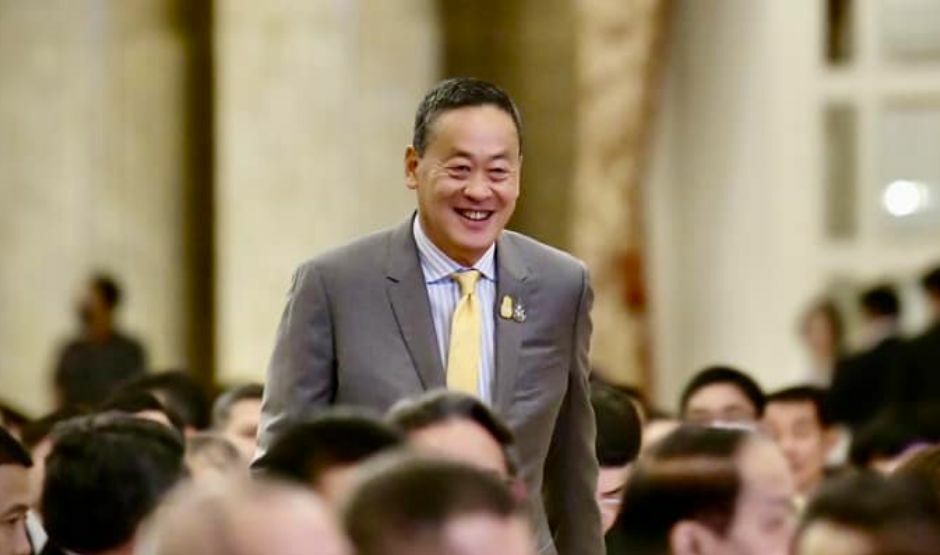Thai high-flyer: PM Srettha aims to lift Thailand to upper-income status in four-year soar

Prime Minister Srettha Thavisin announced ambitious plans to elevate Thailand to an upper-income nation within the next four years.
The 61 year old prime minister unveiled the government’s fiscal strategy for 2024, targeting an average economic growth of 5% per annum and a minimum daily wage of 600 baht by 2027.
The initial proposal includes a raise of the minimum wage to 400 baht per day and monthly salaries for university graduates to 25,000 baht. This is part of a broader strategy to generate higher tax revenues and encourage further investment.
The government’s plans come amidst a backdrop of economic, social, and political challenges, including the impact of the Covid-19 pandemic.
Thailand has committed to tackling these issues in collaboration with international partners, as pledged at the United Nations. The Thai PM acknowledged the effects of geopolitical conflicts on the global supply chain, noting Thailand’s dependency on a limited range of product categories and export markets.
Farmers, who represent a significant proportion of the population, are facing the imminent threat of the El Niño phenomenon. Coupled with existing financial burdens, despite debt suspension schemes, this poses a serious challenge to the government.
Financial discipline
To address this, the government aims to promote financial discipline, enhance production efficiency, drive high-value agricultural innovation and establish partnerships throughout the agricultural value chain.
The country’s rapidly ageing population also presents a unique set of challenges, impacting economic growth, fiscal balances, and health. The government’s immediate priorities include income increase, expense reduction, and infrastructure investment.
Economic stimulus measures, such as the 10,000-baht digital handout scheme, aim to stimulate local economies and prevent income concentration in urban areas. The scheme is expected to revitalise the economy and generate income for citizens.
In the tourism sector, the government plans to implement visa-free measures and fast-track the development of tourist attractions. To reduce the cost of living, the Cabinet has approved plans to reduce energy costs and implement a debt suspension scheme for 2.7 million small farmers.
The government will also promote and support the development of special economic zones, focusing on advanced technology industries. This will be achieved through an equity matching fund in collaboration with the private sector, aiming for unicorn status, reported Bangkok Post.
On the infrastructure front, plans are in place to build more airports to boost tourism in secondary cities and connect railways with China. The new electric train fare will be capped at 20 baht for the entire line, subject to negotiations with operating partners.
Follow more of Thaiger’s latest stories on our new Facebook page HERE.
Latest Thailand News
Follow The Thaiger on Google News:


























